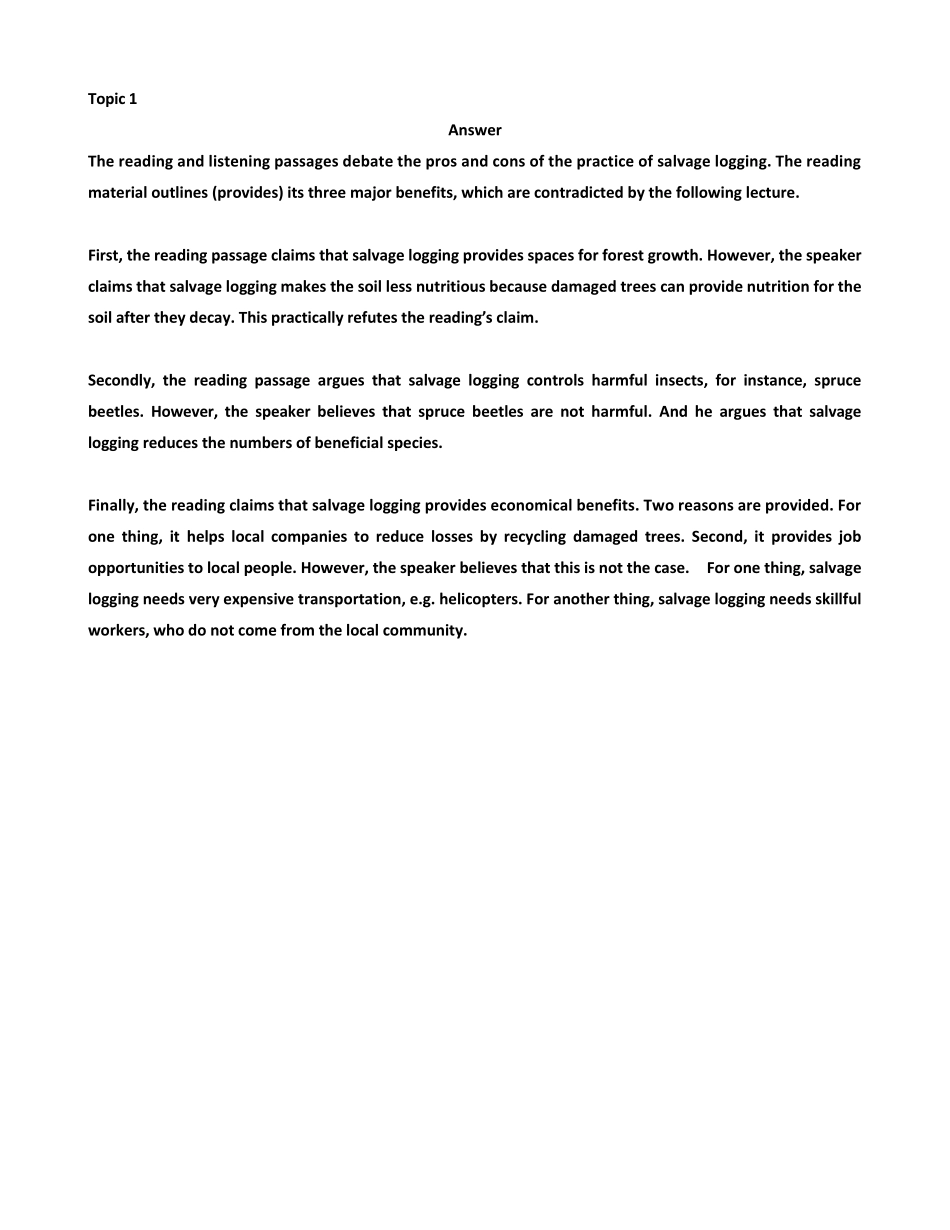Topic 1 Answer The reading and listening passages debate the pros and cons of the practice of salvage logging. The reading material outlines (provides) its three major benefits, which are contradicted by the following lecture. First, the reading passage claims that salvage logging provides spaces for forest growth. However, the speaker claims that salvage logging makes the soil less nutritious because damaged trees can provide nutrition for the soil after they decay. This practically refutes the reading’s claim. Secondly, the reading passage argues that salvage logging controls harmful insects, for instance, spruce beetles. However, the speaker believes that spruce beetles are not harmful. And he argues that salvage logging reduces the numbers of beneficial species. Finally, the reading claims that salvage logging provides economical benefits. Two reasons are provided. For one thing, it helps local companies to reduce losses by recycling damaged trees. Second, it provides job opportunities to local people. However, the speaker believes that this is not the case. For one thing, salvage logging needs very expensive transportation, e.g. helicopters. For another thing, salvage logging needs skillful workers, who do not come from the local community. Topic 2 The reading is correct in pointing out the problems associated with oil powered cars. Yes, oil is a finite resource, and yes, burning oil harms the environment. However, the reading is a way too optimistic at the assessment of hydrogen-based fuel-cell engines. Hydrogen is not the solution to these problems. First, hydrogen is not as easily available as the passage indicates. Although it’s present in common substances like water, is not directly usable in...


